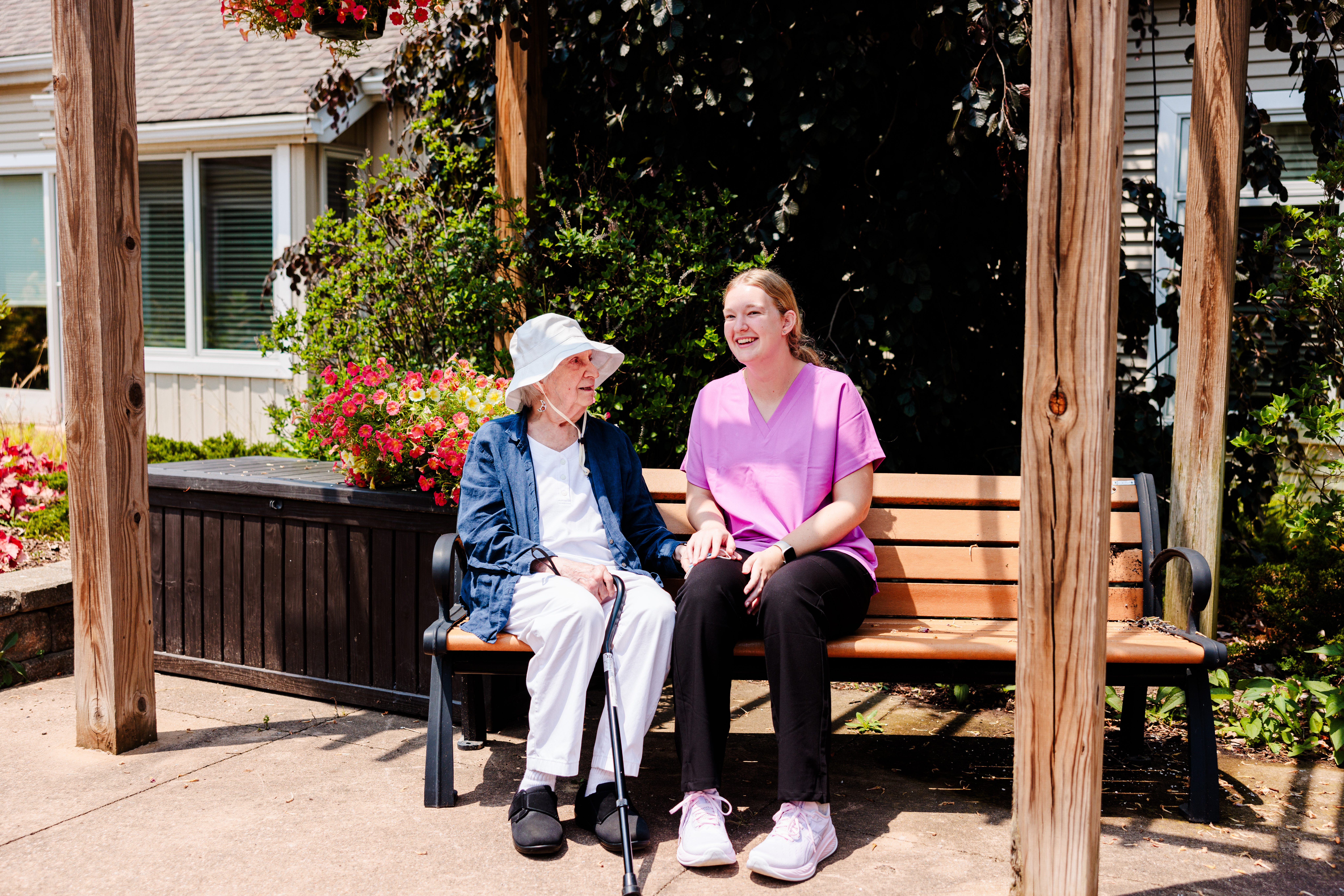Retirement Living: Coping With a Love Lost
by Kristen Hampshire | Nov. 10, 2022 | 1:00 PM

iStock Photo
Losing a spouse later in life can literally break your heart — after years of companionship, support, memories and coping with tough situations together, a grieving spouse can suffer from the widowhood effect. Older adults who lose a spouse have a 66% higher risk of dying within 90 days, according to a study published in The Journal of Public Health.
“It doesn’t matter if you were married for 10 or 15 years or 50 to 70 years, when you lose someone that has been in your life for a long time, it has a profound impact and is one of the biggest stressors,” says Dr. Ronan Factora, a physician in Cleveland Clinic’s Center for Geriatric Medicine.
“When you reach a certain age, it’s hard to fill in that gap,” Factora says. “Everyone goes through grief. It’s natural to feel loss, but grief can lead to depression and broken heart syndrome where they lose all hope and pass away within a year.”
Whether an older adult is living independently or in assisted living, the loss is compounded with age, says Debbie Gouker, a discharge planner in social services at The Welsh Home in Rocky River. “If they have been living in a facility and lose a spouse, it’s one more part of life that has been taken away from them.”
With time, a senior’s connections can dwindle, but avoiding isolation and finding ways to fill the gap are essential for maintaining health and happiness, Factora says. “The loss is out of your control, but the key is to be connected to those who are still around you,” he says, suggesting that families focus on what is intact over what is lost. “It’s hard to do alone,” he acknowledges.
Also, quality of life can diminish during times of grief. The widowhood effect can trigger self-neglect, as older adults who spend all their time caring for an ailing spouse can overlook their own health, according to The National Council on Aging.
The advice to stay connected and allow for self-care is easy to offer but can be challenging to initiate. Here are some ways families can support loved ones who have lost a spouse and what surviving widows can do to find purpose and peace of mind amid a significant loss.
Make Plans. After a death, the rush of preparing and planning can distract a surviving spouse from falling into despair. Funerals bring in family and visitors, and arrangements consume time that might otherwise be spent dwelling on loss. “You have so much support during the funeral and then that dwindles," Factora says. "That is when you have to continue to keep those connections."
Everyone responds to and recovers from grief differently, he adds.
“Most of us need to go through that entire first year without a loved one present — major holidays, anniversaries, birthdays and significant dates,” Factora says, advising that loved ones keep an eye on the surviving spouse and check in frequently. “Be watchful and look for changes that transfer simple grief to depression.”
Indicators include withdrawn behavior, loss of appetite and remarks that life is just not worth living.
“These are all reasons to intervene, but you can’t watch out for symptoms if you are not in contact.”
Take Stock. “Look around and consider all that you have,” Factora suggests. “Try to build a life based on that. Do you have good contact with friends or neighbors? Are you involved in community organizations, a local church or religious group?”
Fill time with activities to take the mind away from loss, he advises.
“It’s cliché to say, ‘Get your mind on something else,’ but try to avoid that alone time when you are dwelling on loss.”
Send in Support. Older spouses often have traditional roles in the household that can leave the survivor with new tasks that can be overwhelming — whether it’s paying the bills, preparing meals, caring for the lawn or filling the social calendar.
“For families, you can help them learn new tasks or arrange for services to help with housework,” Factora suggests. “Even the bank can help set up accounts for auto-pay.”
Take Time with Big Decisions. The family home without a spouse can feel empty and be a lot to manage.
Loved ones might encourage moving to a community setting with more support and social connection.
This can be a solution — just take care to bench major decisions during initial periods of grief, Factora recommends.
“It’s better to take a deep breath, wait and think it through,” he says. “Get through this period and then plan ahead if you want to make a move.”
Ideally, major planning and organizing occurs before the death of a spouse.
“Many of my patients have involved families and they want to make sure their older family members are living the type of life they would want and achieving their goals whether that’s maintaining independence or quality of life,” says
Factora.
Seek Counseling. If a late spouse was in a hospice program, find out about available grief counseling services, Gouker suggests.
“Church groups are a great resource as well, and if a loved one is living in a facility, see about enrichment programs and activities that can get a spouse’s mind off of the loss,” she adds.
Gouker says she connects residents coping with grief with other older adults living in the community who can share their experiences. “It helps to know they are not the only ones going through this,” she says.
Above all, Gouker says this: “My biggest advice is, take it one day at a time.”
Start your day the best way by signing up for our free daily newsletter. Arriving in your inbox every morning to keep you in the loop on the best guides, home and style tips, and news briefs for all things Cleveland. Click here to subscribe.
Trending
-
1
-
2
-
3
-
4
-
5










